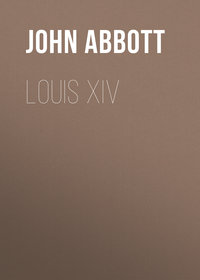
Benjamin Franklin
The unrelenting king was still determined that the Americans, unrepresented in Parliament, should still pay into his treasury whatever sums of money he might exact. Calling to his aid courtiers more shrewd than himself, they devised a very cunning act, to attain that object in a way which would hardly be likely to excite opposition. They laid a tax, insignificant really in its amount, upon paper, paint, glass, and tea. This tax was to be collected at the custom-houses in the few ports of entry in the colonies. The whole amount thus raised would not exceed forty thousand pounds. It was thought that the Americans would never make opposition to so trivial a payment.
But it established a principle that England could tax the colonies without allowing those colonies any representation in Parliament. If the Court had a right thus to demand forty thousand pounds, they had a right to demand so many millions, should it seem expedient to king and cabinet so to do.
The great blunder which the court committed, was in not appreciating the wide-spread intelligence of the American people. In New England particularly, and throughout the colonies generally, there was scarcely a farmer who did not perceive the trick, and despise it. They deemed it an insult to their intelligence.
Instantly there arose, throughout all the provinces, the most determined opposition to the measure. It was in fact merely a renewal of the Stamp Act, under slightly modified forms. If they admitted the justice of this act, it was only declaring that they had acted with unpardonable folly, in opposing the tax under the previous form.
Dr. Franklin, with honest shrewdness, not with trickery or with cunning, but with a sincere and penetrating mind, eagerly scrutinized all the measures of the Court. George III. was a gentleman. He was irreproachable in all his domestic relations. He was, in a sense, conscientious; for certainly he was not disposed to do anything which he thought to be wrong. Conscientious men have burned their fellow-Christians at the stake. It is said that George the Third was a Christian. He certainly was a full believer in the religion of Jesus Christ; and earnestly advocated the support and extension of that religion. God makes great allowance for the frailties of his fallen children. It requires the wisdom of omniscience to decide how much wickedness there may be in the heart, consistently with piety. No man is perfect.
During the reign of George III., terrible wars were waged throughout all the world, mainly incited by the British Court. Millions perished. The moans of widows and orphans ascended from every hand. This wicked Christian king sent his navy and his army to burn down our cities and villages, and to shoot husbands, fathers, and sons, until he could compel America to submit to his despotism. The population of England being exhausted by those wide spread wars, he hired, of the petty princes of Europe, innocent peasantry, to abandon their homes in Germany, to burn and destroy the homes of Americans. Finding that not sufficient, he sent his agents through the wilderness to rouse, by bribes, savage men, who knew no better, to ravage our frontiers, to burn the cabins of lonely farmers, to tomahawk and scalp their wives and children.
Such a man may be a good Christian. God, who can read the secrets of the heart, and who is infinite in his love and charity, alone can decide. But if we imagine that man, George Guelph, at the bar of judgment, and thronging up as witnesses against him, the millions whose earthly homes he converted into abodes of misery and despair, it is difficult to imagine in our frail natures, how our Heavenly Father, who loves all his children alike, and who, as revealed in the person of Jesus, could weep over the woes of humanity, could look with a loving smile upon him and say, “Well done, good and faithful servant, enter thou into the joy of thy Lord.”
Franklin of course continued in as determined an opposition to the new tax as to the old one. He wrote,
“I have some little property in America. I will freely spend nineteen shillings in the pound to defend my right of giving or refusing the other shilling. And after all, if I cannot defend that right, I can retire cheerfully with my little family into the boundless woods of America, which are sure to afford freedom and subsistence to any man who can bait a hook or pull a trigger.”
The ability which Franklin had displayed as the agent of Pennsylvania before the court of St. James, gave him, as we have said, a high reputation in all the colonies. In the spring of 1768 he was highly gratified by the intelligence that he was appointed, by the young colony of Georgia, its London agent. The next year New Jersey conferred the same honor upon him, and the year after, he was appointed agent of his native province of Massachusetts. These several appointments detained him ten years in England.
During all this time he did not visit home. The equanimity of his joyful spirit seems never to have been disturbed. His pen describes only pleasant scenes. No murmurs are recorded, no yearnings of home-sickness.
But month after month the animosity of the British Court towards the Americans was increasing. The king grew more and more fixed in his purpose, to compel the liberty-loving Americans to submission. Hostile movements were multiplied to indicate that if the opposition to his measures was continued, English fleets and armies would soon commence operations.
Several thousand troops were landed in Boston. Fourteen men-of-war were anchored before the town, with the cannon of their broad-sides loaded and primed, ready, at the slightest provocation to lay the whole town in ashes. Protected by this terrible menace, two British regiments paraded the streets, with their muskets charged, with gleaming sabres and bayonets, with formidable artillery prepared to vomit forth the most horrible discharges of grape shot, with haughty English officers well mounted, and soldiers and officers alike in imposing uniforms. This invincible band of highly disciplined soldiers, as a peace measure, took possession of the Common, the State House, the Court House and Faneuil Hall.
Even now, after the lapse of more than a hundred years, it makes the blood of an American boil to contemplate this insult. Who can imagine the feelings of exasperation that must have glowed in the bosoms of our patriotic fathers!
Franklin, in England, was treated with ever increasing disrespect. Lord Hillsborough, then in charge of American affairs, told him peremptorily, even insolently, that America could expect no favors while he himself was in power, and that he was determined to persevere with firmness in the policy which the king was pursuing. The king was so shielded by his ministers that Franklin knew but little about him. Even at this time he wrote,
“I can scarcely conceive a king of better dispositions, of more exemplary virtues, or more truly desirous of promoting the welfare of his subjects.”
Franklin never had occasion to speak differently of his domestic virtues. Nay, it is more than probable that the king daily, in prayer, looked to God for guidance, and that he thought that he was doing that which was promotive of the interests of England. Alas for man! He can perpetrate the most atrocious crimes, honestly believing that he is doing God’s will. He can burn aged women under the charge of their being witches. He can torture, in the infliction of unutterable anguish, his brother man – mothers and daughters, under the charge of heresy. He can hurl hundreds of thousands of men against each other in most horrible and woe-inflicting wars, while falling upon his knees and praying to God to bless his murderous armies.
Franklin had with him his grandson, William Temple Franklin, the dishonored son of William Franklin, then Governor of New Jersey. He was a bright and promising boy, and developed an estimable character, under the guidance of his grandfather, who loved him.
William Franklin in New Jersey was, however, becoming increasingly the scourge of his father. It would seem that Providence was thus, in some measure, punishing Franklin for his sin. The governor, appointed by the Court of England to his office, which he highly prized, and which he feared to lose, was siding with the Court. He perceived that the storm of political agitation was increasing in severity. He felt that the power of the colonies was as nothing compared with the power of the British government. Gradually he became one of the most violent of the Tories.
The moderation of Franklin, and his extraordinarily charitable disposition, led him to refrain from all denunciations of his ungrateful son, or even reproaches, until his conduct became absolutely infamous. In 1773, he wrote, in reference to the course which the governor was pursuing,
“I only wish you to act uprightly and steadily, avoiding that duplicity which, in Hutchinson, adds contempt to indignation. If you can promote the prosperity of your people, and leave them happier than you found them, whatever your political principles are, your memory will be honored.”
While Franklin was absent, a young merchant of Philadelphia, Richard Bache, offered his hand to Franklin’s only daughter, from whom the father had been absent nearly all of her life. Sarah was then twenty-three years of age, so beautiful as to become quite a celebrity, and she was highly accomplished. Mr. Bache was not successful in business, and the young couple resided under the roof of Mrs. Franklin for eight years. The husband, with an increasing family, appealed to his illustrious father-in-law, to obtain for him a governmental appointment. Franklin wrote to his daughter,
“I am of opinion, that almost any profession a man has been educated in, is preferable to an office held at pleasure, as rendering him more independent, more a free man, and less subject to the caprices of his superiors. I think that in keeping a store, if it be where you dwell, you can be serviceable to him, as your mother was to me; for you are not deficient in capacity, and I hope you are not too proud. You might easily learn accounts; and you can copy letters, or write them very well on occasion. By industry and frugality you may get forward in the world, being both of you very young. And then what we may leave you at our death, will be a pretty addition, though of itself far from sufficient to maintain and bring up a family.”
Franklin gave his son-in-law about a thousand dollars to assist him in the purchase of a stock of merchandise. The children, born to this happy couple, were intelligent and beautiful, and they greatly contributed to the happiness of their grandmother, who cherished them with a grandmother’s most tender love. In the year 1862, there were one hundred and ten surviving descendants of Richard Bache and Sarah Franklin. Ten of these were serving in the Union army perilling their lives to maintain that national fabric, which their illustrious ancestor had done so much to establish. Franklin was by no means a man of one idea. His comprehensive mind seemed to grasp all questions of statesmanship, of philanthropy, of philosophy.
During the ten years of his residence in England he visited the hospitals, carefully examined their management, and transmitted to his home the result of his observations. This was probably the origin of the celebrity which the medical schools of Philadelphia have attained. He visited the silk manufactories, and urged the adoption of that branch of industry, as peculiarly adapted to our climate and people. Ere long he had the pleasure of presenting to the queen a piece of American silk, which she accepted and wore as a dress. As silk was an article not produced in England, the government was not offended by the introduction of that branch of industry. For Hartford college he procured a telescope, which cost about five hundred dollars. This was, in those days, an important event.
The renowned Captain Cook returned from his first voyage around the world. The narrative of his adventures, in the discovery of new islands, and new races of men, excited almost every mind in England and America. Franklin was prominent in the movement, to raise seventy-five thousand dollars, to fit out an expedition to send to those benighted islanders the fowls, the quadrupeds and the seeds of Europe. He wrote, in an admirable strain,
“Many voyages have been undertaken with views of profit or of plunder, or to gratify resentment. But a voyage is now proposed to visit a distant people on the other side of the globe, not to cheat them, not to rob them: not to seize their lands or to enslave their persons, but merely to do them good, and make them, as far as in our power lies, to live as comfortable as ourselves.”
There can be no national prosperity without virtue. There can not be a happy people who do not “do justly, love mercy, and walk humbly with God.” It was a noble enterprise to send to those naked savages corn and hoes, with horses, pigs and poultry. But the Christian conscience awoke to the conviction that something more than this was necessary. They sent, to the dreary huts of the Pacific, ambassadors of the religion of Jesus, to gather the children in schools, to establish the sanctity of the family relation, and to proclaim to all, the glad tidings of that divine Saviour, who has come to earth “to seek and to save the lost.”
CHAPTER XI.
The Intolerance of King and Court
Parties in England – Franklin the favorite of the opposition – Plans of the Tories – Christian III – Letter of Franklin – Dr. Priestley – Parisian courtesy – Louis XV – Visit to Ireland – Attempted alteration of the Prayer Book – Letter to his son – Astounding letters from America – Words of John Adams – Petition of the Assembly – Violent conspiracy against Franklin – His bearing in the court-room – Wedderburn’s infamous charges – Letter of Franklin – Bitter words of Dr. Johnson – Morals of English lords – Commercial value of the Colonies – Dangers threatening FranklinWherever there is a government there must be an opposition. Those who are out of office wish to eject those in office, that they may take their places. There was a pretty strong party in what was called the Opposition. But it was composed of persons animated by very different motives. The first consisted of those intelligent, high minded, virtuous statesmen, who were indignant in view of the wrong which the haughty, unprincipled Tory government was inflicting upon the American people. The second gathered those who were in trade. They cared nothing for the Americans. They cared nothing for government right or wrong. They wished to sell their hats, their cutlery, and their cotton and woolen goods to the Americans. This they could not do while government was despotically enforcing the Stamp Act or the Revenue Bill. Then came a third class, who had no goods to sell, and no conscience to guide to action. They were merely ambitious politicians. They wished to thrust the Tories out of office simply that they might rush into the occupancy of all the places of honor, emolument or power.
Franklin was in high favor with the opposition. He furnished their orators in Parliament with arguments, with illustrations, with accurate statistical information. Many of the most telling passages in parliamentary speeches, were placed on the lips of the speakers by Benjamin Franklin. He wrote pamphlets of marvellous popular power, which were read in all the workshops, and greatly increased the number and the intelligence of the foes of the government measures. Thus Franklin became the favorite of the popular party. They lavished all honors upon him. In the same measure he became obnoxious to the haughty, aristocratic Tory government. Its ranks were filled with the lords, the governmental officials, and all their dependents. This made a party very powerful in numbers, and still more powerful in wealth and influence. They were watching for opportunities to traduce Franklin, to ruin his reputation, and if possible, to bring him into contempt.
This will explain the honors which were conferred upon him by one party, and the indignities to which he was subjected from the other. At times, the Tories would make efforts by flattery, by offers of position, of emolument, by various occult forms of bribery, to draw Franklin to their side. He might very easily have attained almost any amount of wealth and high official dignity.
The king of Denmark, Christian VII., was brother-in-law of George III. He visited England; a mere boy in years, and still more a weak boy in insipidity of character. A large dinner-party was given in his honor at the Royal Palace. Franklin was one of the guests. In some way unexplained, he impressed the boy-king with a sense of his inherent and peculiar greatness. Christian invited a select circle of but sixteen men to dine with him. Among those thus carefully selected, Franklin was honored with an invitation. Though sixty-seven years of age he still enjoyed in the highest degree, convivial scenes. He could tell stories, and sing songs which gave delight to all. It was his boast that he could empty his two bottles of wine, and still retain entire sobriety. He wrote to Hugh Roberts,
“I wish you would continue to meet the Junto. It wants but about two years of forty since it was established. We loved, and still love one another; we have grown grey together, and yet it is too early to part. Let us sit till the evening of life is spent; the last hours are always the most joyous. When we can stay no longer, it is time enough to bid each other good night, separate, and go quietly to bed.”
Franklin was the last person to find any enjoyment in the society of vulgar and dissolute men. In those days, it was scarcely a reproach for a young lord to be carried home from a festivity in deadly intoxication. Witticisms were admitted into such circles which respectable men would not tolerate now. Franklin’s most intimate friends in London were found among Unitarian clergymen, and those philosophers who were in sympathy with him in his rejection of the Christian religion. Dr. Richard Price, and Dr. Joseph Priestly, men both eminent for intellectual ability and virtues, were his bosom friends.
Dr. Priestly, who had many conversations with Franklin upon religious topics, deeply deplored the looseness of his views. Though Dr. Priestly rejected the divinity of Christ, he still firmly adhered to the belief that Christianity was of divine origin. In his autobiography, Dr. Priestly writes:
“It is much to be lamented that a man of Dr. Franklin’s generally good character and great influence, should have been an unbeliever in Christianity, and also have done so much as he did to make others unbelievers. To me, however, he acknowledged that he had not given so much attention as he ought to have done to the evidences of Christianity; and he desired me to recommend him a few treatises on the subject, such as I thought most deserving his notice.”
Priestly did so; but Franklin, all absorbed in his social festivities, his scientific researches, and his intense patriotic labors, could find no time to devote to that subject – the immortal destiny of man, – which is infinitely more important to each individual than all others combined.22 It was indeed a sad circle of unbelievers, into whose intimacy Franklin was thrown. Dr. Priestly writes,
“In Paris, in 1774, all the philosophical persons to whom I was introduced, were unbelievers in Christianity, and even professed atheists. I was told by some of them, that I was the only person they had ever met, of whose understanding they had any opinion, who professed to believe in Christianity. But I soon found they did not really know what Christianity was.”
It was Franklin’s practice to spend a part of every summer in traveling. In 1767, accompanied by Sir John Pringle, he visited Paris. With Franklin, one of the first of earthly virtues was courtesy. He was charmed with the politeness of the French people. Even the most humble of the working classes, were gentlemanly; and from the highest to the lowest, he, simply as a stranger, was treated with consideration which surprised him. He writes,
“The civilities we everywhere receive, give us the strongest impressions of the French politeness. It seems to be a point settled here universally, that strangers are to be treated with respect; and one has just the same deference shown one here, by being a stranger, as in England, by being a lady.”
Two dozen bottles of port-wine were given them at Bordeaux. These, as the law required, were seized by the custom-house officers, as they entered Paris by the Porte St. Denis; but as soon as it was ascertained that they were strangers, the wine was remitted.
There was a magnificent illumination of the Church of Notre Dame, in honor of the deceased Dauphiness. Thousands could not obtain admission. An officer, learning merely that they were strangers, took them in charge, conducted them through the vast edifice, and showed them every thing.
Franklin and his companion had the honor of a presentation to the king, Louis XV., at Versailles. This monarch was as vile a man as ever occupied a throne. But he had the virtue of courtesy, which Franklin placed at the head of religious principle. The philosopher simply records,
“The king spoke to both of us very graciously and very cheerfully. He is a handsome man, has a very lively look, and appears younger than he is.”
In 1772, Franklin visited Ireland. He was treated there with great honor; but the poverty of the Irish peasantry overwhelmed his benevolent heart with astonishment and dismay. He writes,
“I thought often of the happiness of New England, where every man is a free-holder, has a vote in public affairs, lives in a tidy, warm house, has plenty of good food and fuel, with whole clothes from head to foot, the manufacture perhaps of his own family. Long may they continue in this situation.”
In the year 1773, Franklin spent several weeks in the beautiful mansion of his friend, Lord Despencer. We read with astonishment, that Franklin, who openly renounced all belief in the divine origin of Christianity, should have undertaken, with Lord Despencer, an abbreviation of the prayer-book of the Church of England. It is surprising, that he could have thought it possible, that the eminent Christians, clergy and laity of that church, would accept at the hands of a deist, their form of worship. But Franklin was faithful in the abbreviation, not to make the slightest change in the evangelical character of that admirable work, which through ages has guided the devotion of millions. The abbreviated service, cut down one-half, attracted no attention, and scarcely a copy was sold.
At this time, Franklin’s reputation was in its meridian altitude. There was scarcely a man in Europe or America, more prominent. Every learned body in Europe, of any importance, had elected him a member. Splendid editions of his works were published in London; and three editions were issued from the press in Paris.
In France, Franklin met with no insults, with no opposition. All alike smiled upon him, and the voices of commendation alone fell upon his ear.
Returning to England, his reputation there, as a man of high moral worth, and of almost the highest intellectual attainments, and a man honored in the most remarkable degree with all the highest offices which his countrymen could confer upon him, swept contumely from his path, and even his enemies were ashamed to manifest their hostility. From London he wrote to his son,
“As to my situation here, nothing can be more agreeable. Learned and ingenious foreigners that come to England, almost all make a point of visiting me; for my reputation is still higher abroad, than here. Several of the foreign ambassadors have assiduously cultivated my acquaintance, treating me as one of their corps, partly, I believe, from the desire they have from time to time, of hearing something of American affairs; an object become of importance in foreign courts, who begin to hope Britain’s alarming power will be diminished by the defection of her colonies.”23
In the latter part of the year 1772, Franklin, in his ever courteous, but decisive language, was conversing with an influential member of Parliament, respecting the violent proceedings of the ministry, in quartering troops upon the citizens of Boston. The member, in reply, said,
“You are deceived in supposing these measures to originate with the ministry. The sending out of the troops, and all the hostile measures, of which you complain, have not only been suggested, but solicited, by prominent men of your own country. They have urged that troops should be sent, and that fleets should enter your harbors, declaring that in no other way, than by this menace of power, can the turbulent Americans be brought to see their guilt and danger, and return to obedience.”









